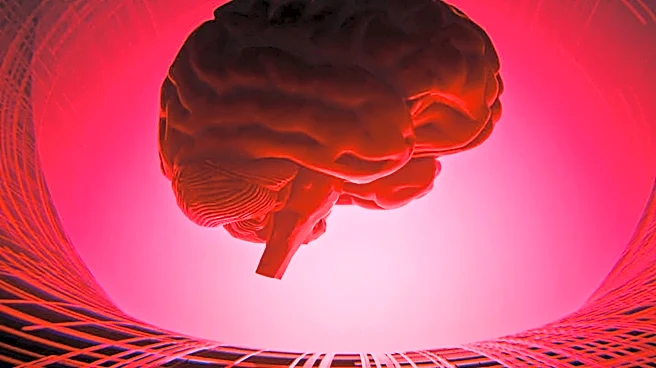What's Happening?
A recent clinical trial investigated the effects of combining repetitive transcranial magnetic stimulation (rTMS) with social cognitive remediation group therapy (SCRT) to improve hand gesture performance in individuals with schizophrenia. The trial involved 10 sessions of rTMS over the right inferior parietal lobe and 16 sessions of SCRT. While the combination did not improve overall hand gesture performance, it showed improvements in pantomime meaningless gestures and personal and social functioning during follow-up periods. The study highlights the potential of rTMS and SCRT in enhancing nonverbal communication skills, which are crucial for social interaction.
Why It's Important?
The trial's findings are significant for the treatment of schizophrenia, a condition often associated with impaired social functioning. By improving gesture performance, the combination of rTMS and SCRT could enhance patients' ability to communicate nonverbally, potentially leading to better social integration and quality of life. This approach may offer a new avenue for therapeutic interventions in schizophrenia, focusing on nonverbal communication as a key component of social functioning. The results could influence future research and clinical practices, encouraging the exploration of combined therapies for cognitive and social skill enhancement.
What's Next?
Future research could expand on these findings by exploring larger multicenter trials and optimizing SCRT content and rTMS protocols. The study suggests the potential for combining rTMS with virtual reality to simulate real-life scenarios, providing a controlled environment for therapy. Additionally, future studies might consider multisite neuromodulation or combining stimulation with semantic-action training to support complex gesture types. These advancements could lead to more effective treatments for schizophrenia, improving patients' social and cognitive skills.
Beyond the Headlines
The trial underscores the importance of addressing nonverbal communication in schizophrenia treatment. Enhancing pantomime gestures may support better social communication and functional outcomes, reflecting broader praxis abilities. The study also highlights the need for tailored interventions that consider the complex cognitive and neural demands of different gesture types. This approach could lead to more personalized and effective treatments, improving patients' ability to navigate social interactions.











